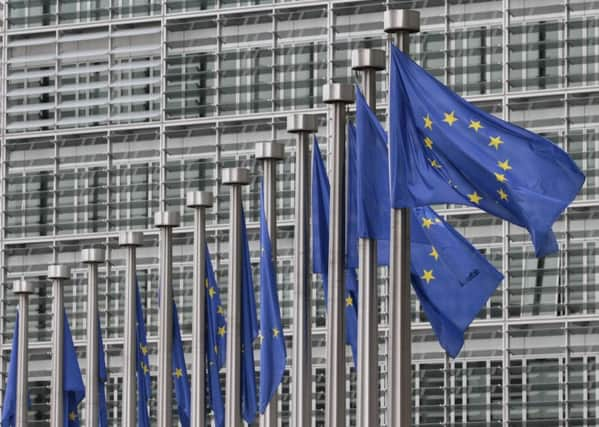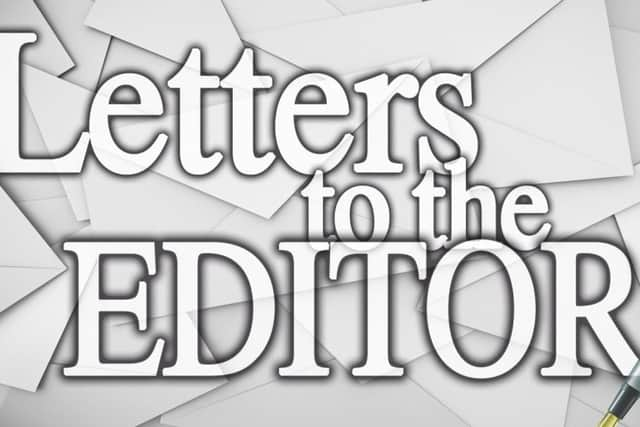Nicholas Whyte: Brussels policy machinery is actually very open to external input


I’m sending this message to, basically, everyone I know in the UK.
I was born in Belfast. I grew up in a country which was not at peace. I sat in the back row during the first six months of the 1996-98 talks that led to the Good Friday Agreement.
Advertisement
Hide AdAdvertisement
Hide AdPeace in Northern Ireland would simply not have been possible without the European dimension, which transformed the relations between the UK and Ireland from a zero-sum game over sovereignty and loyalty, to a co-operative project of shared growth.


I see the Leave campaign asserting that nothing would change between Northern Ireland and the Republic if Britain left the European Union. I can’t reconcile this with their commitment to regain control of Britain’s borders.
At the very least, there would need to be customs posts if the UK is no longer in the EU customs union. (And if nothing is going to change, what is Thursday’s vote actually for?)
On similar lines, I recently had a very interesting chat with leading members of the government of Gibraltar, who are very concerned that their delicate relationship with Spain will be critically undermined if the UK votes to leave.
Advertisement
Hide AdAdvertisement
Hide AdNorthern Ireland and Gibraltar are both likely to deliver strong votes for Remain on Thursday; these are the people who face the sharp end of the sovereignty question, and perhaps their views matter.


I’ve worked in other troubled parts of the world. I contributed to the 2001 EU-brokered Macedonian peace agreement. I advised Croatia’s negotiators on their EU accession, and Montenegro and Kosovo on how to anchor their independent status in the European framework. In the Balkans, the governments and peoples that were at war with each other in the 1990s are now committed to working out their differences peacefully, in the framework of joining the EU.
I have also advised the Turkish Cypriot leadership and the Moldovan government. In both cases, the attraction of the EU is proving to be crucial in overcoming the deep divisions that have previously erupted into conflict. These are imperfect processes – what process is perfect? – but the shared factor is clear. Compare these two situations, inching forward, with other frozen conflicts in the neighbourhood (Israel/Palestine being the most obvious) which remain intractable and coincidentally have no prospect of European integration.
Britain may well choose to walk away from the project of making and keeping peace in Europe by building a common future. But that will certainly weaken the mission as a whole, increasing the risk of new conflict. I hope it doesn’t happen.
Advertisement
Hide AdAdvertisement
Hide AdJust two other points, if I may. First, I’m really saddened by the vicious rhetoric about migration that has characterised the campaign. I take it personally. I am a migrant, as are several of my closest relatives. It seems to me, from afar, that if public services in Britain are under stress, that is because of a broader problem with the funding model. Blaming migrants, particularly considering how much they actually contribute to delivery of those services, is a distraction.


I also want to say that, contrary to some perceptions, I find the Brussels policy machinery very open to external input. It’s not surprising that this is the case, given that a broad consensus from business, unions, consumers and citizens is needed to persuade a sufficient majority of elected governments and elected MEPs to agree to any particular proposal. I may have been fortunate – I work on a fairly narrow range of issues – but I really think that this is the single aspect that has been most maliciously reported by the UK media. I’m happy to talk more about this if you have any questions.
Of course, Brexit will be a bonanza for public affairs consultants like me. The process itself will include lots of moving parts to report on and to try and influence; the end result will be more decisions taken in London, where lobbying is barely scrutinised, rather than Brussels, where the demands of transparency are getting tougher. But my pocket does not always rule my head.
Anyway, I’ll be up all night on Thursday, hoping for the best. Good luck.
Nicholas Whyte, Brussels